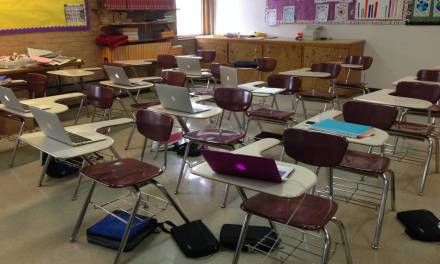Following the recent shake-up within the UK government, the impact it could have on the education sector could be massive. What does this mean for the education sector, alternative provisions and what needs to be done to improve standards for the 2022/23 academic year?
Prime Minister Boris Johnson recently announced his resignation but will remain as caretaker PM until a new leader has been chosen.
Following several candidates vying for the position, it now looks as though “either Rishi Sunak or Liz Truss will become the UK’s next prime minister”.– BBC
James Cleverly has now been appointed as the Secretary of State for Education replacing Nadhim Zahawi who was appointed the Chancellor of the Exchequer. Michelle Donelan briefly held the position for two days before Mr Johnson’s announcement.
Will all this shift in government pay off? That will remain to be seen. Appropriate measures need to be implemented to ensure that the education sector is ready to improve upon standards that have followed the pandemic.
Government changes mean a shift in education?
Over recent years, students have had to manage a shift towards online learning and then reintegrate back into school life with factors such as an increase in mental health concerns affecting learning.
Additionally, the standard of students’ attainment levels has seen a dive and following the new shift in government, it could either be positive or negative. General Secretary, for the Association of School & College Leaders, Geoff Barton highlighted how there was an ambitious target in the schools white paper:
“for raising literacy and numeracy attainment by 2030, as well as the considerable challenge of restructuring the entire education system to become MAT-led.”
Targets set out by the government need to be realistic and a methodical approach to how these targets will be met needs effectively strategising so that all students are included and benefit.
Attainment levels have suffered since the pandemic. According to recent research:
“Just 59% of 10- and 11-year-olds reach expected standards in literacy, writing and maths in this year’s assessment.”
Supporting students’ educational recovery and catch-up into the new academic year is crucial. Schools need to work in combination with the government and parents to identify clear pathways for students.
Subsequently, in line with the recent 2022 SEND Review, students within alternative provision settings need enhanced support. The main challenges the document identified were:
- Navigating the SEND system and alternative provision is not a positive experience for too many children, young people and their families.
- Outcomes for children and young people with SEND or in alternative provision are consistently worse than their peers across every measure.
- Despite the continuing and unprecedented investment, the system is not financially sustainable. – SEND Summary
The government has proposed to establish a new SEND and alternative provision system that definitively outlines high standards for every child to meet certain needs. It should also allow parents to have the confidence that their child is acquiring adequate support. It also proposes to:
“make alternative provision an integral part of local SEND systems by requiring the new SEND partnerships to plan and deliver an alternative provision service focused on early intervention”
and
“increase the total investment in the schools’ budget, with an additional £1 billion in 2022 to 2023 to support children and young people with the most complex needs.”
Improving standards in education
There have been several challenges that schools have had to face over the past few years. Challenges such as:
- Supporting SEND students
- Budgets cuts
- An adequate communication system between parents, school and students
- Hitting certain attainment standards
- Maintaining a good standard of attendance and monitoring students who are absent effectively
- Teacher shortages
- A lack of access to technology or facilities for certain pupils
It is clear that education needs a revamp and this new government shift could be the spark that the new academic year has been waiting for. What could be done to improve standards and what does the government need to follow through with?
- An improved budget from the government and effective distribution of money to areas that require more support.
- Providing a personalised learning experience with a pathway of advancing knowledge so that it suits the individual learner.
- Using EdTech and online learning to a school’s advantage. Quicker marking and efficient assessments speed up the process which can improve attainment levels. It also reduces paper and workload.
- Open a portal of communication between parents, school and students and offer regular well-being and progression meetings.
- Increase the standard of teacher training and uphold certain expectations so NQTs are aware of what to expect within the education sector.
The government needs to ensure that there are procedures or measures in place that will ensure teachers and schools are ready for the new academic year and help support students, especially those who require support in alternative provisions.
Online alternative provisions such as EDClass can help aid all discussed above. Persistently absent students could have several reasons as to why they don’t want to attend mainstream education, but it is now important that these students are looked after and helped in their reintegration process.
Additionally, those home-educated can even be supported online, reducing teacher workload and can be safeguarded if such systems are in place.
Just take a look at this story here of how an online alternative provision can effectively support those students who require support.
If you would like a discussion on how an online alternative provision can help educate and safeguard your students then call the EDClass team on 01909 568 338, send an email to mail@edclass.com or book a free online demonstration here.









